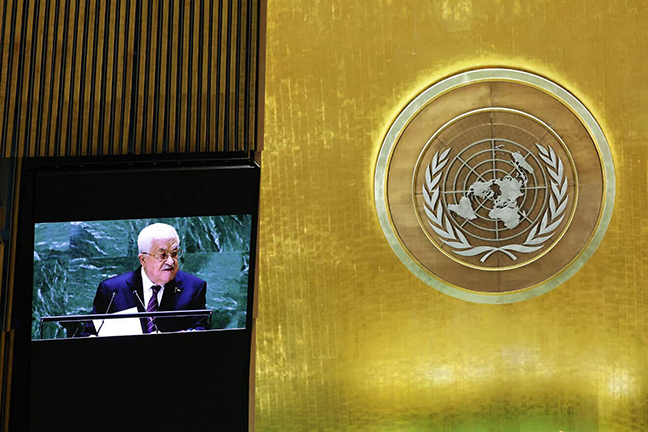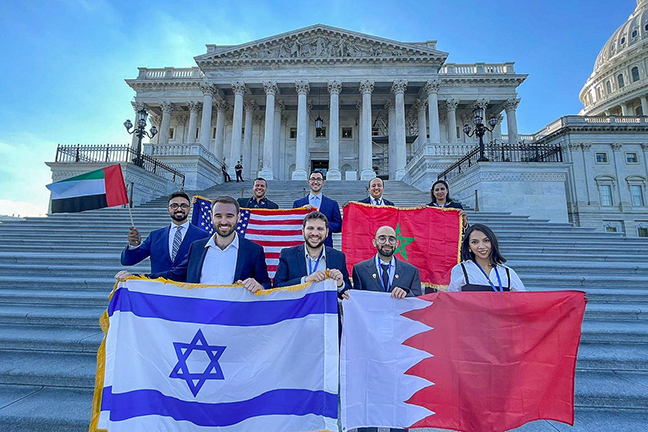As activists fault Israel, even the U.N. praises Israeli-Palestinian COVID-fighting cooperation

Nickolay Mladenov, UN Special Coordinator for the Middle East Peace Process and Personal Representative of the Secretary-General to the Palestine Liberation Organization and the Palestinian Authority. UN photo by Eskinder Debebe
by Larry Brook
(Israel InSight) — While anti-Israel activists use the coronavirus as yet another way to bash Israel and the “occupation,” an organization that is usually hostile to Israel has praised the cooperation between Israel and Palestinian authorities in fighting the pandemic.
Nickolay Mladenov, the United Nations Special Coordinator for the Middle East Peace Process, issued that praise during a telephone conversation with the Middle East Quartet, a group that was established to mediate the Israeli-Palestinian peace process, on March 26. The Quartet consists of the United States, European Union, Russia and the U.N.
In the call, Mladenov spoke mainly about Gaza and the risk of disease spreading there, but he said the close coordination between Israel and Palestinian leaders has been a major factor in containing the disease thus far. He described the cooperation as “excellent.”
He said Israel has allowed critical supplies and equipment into Gaza, such as testing swabs and lab supplies needed for testing, and personal protective equipment. Israel’s blockade of Gaza is for “dual use” equipment that is diverted by Hamas to terror infrastructure; food, humanitarian aid and medicine are allowed to pass into Gaza.
The United Nations statement also said Israel has been cooperating with allowing health workers and others involved in fighting COVID-19 to move in and out of the territories and Gaza.
In a March 30 briefing, Mladenov told the Security Council that the “coordination that has been put in place and the joint commitment to tackle the threat to both populations is exemplary.” He praised “the far-reaching measures that both Israel and the Palestinian Authority have taken to try and contain the spread of the COVID-19 virus.”
He did note, though, that the broader context must still be noted, “Israel’s continued military occupation of Palestinian territory, illegal settlement activity and the threat of annexation; Hamas’ continuing hold over Gaza and its militant activity; Israeli closures on Gaza; unilateral actions that undermine peace efforts; severe challenges to the fiscal viability of the Palestinian Authority; and the persistent risk of military escalation.”
Ibrahim Milheim, spokesman for the Palestinian Authority, routinely mentions cooperation with Israel during his briefings, though other PA officials routinely accuse Israel of using the pandemic as a pretext to violate Palestinian rights.
Recently, a Palestinian Authority newspaper criticized Hamas for endangering Gazans by not closing mosques there, while condemning Israel for those types of restrictions on gatherings at the al-Aqsa mosque as part of widespread bans on public events.
Alon Bar, deputy director-general for the UN and international organizations at the Israeli Foreign Ministry, said cooperation “is essential and necessary for an effective response to the spread of the virus.”
On March 24, the U.N. Office for the Coordination of Humanitarian Affairs’ Palestine office published its first “emergency situation report,” which praised the “unprecedented cooperation” in containing COVID-19 between Israel and the Palestinians. “Representatives from both ministries of health, as well as from Israel’s Coordinator for Government Activities in the Territories (COGAT) have been meeting on a regular basis to agree on matters of mutual concern.”
UN Secretary-General Antonio Guterres, at a March 25 press conference, said “in fighting COVID-19, the Palestinian Authority and Israel have been able to work together, even if we know the extreme division that exists politically between the two.”
Israeli President Reuven Rivlin spoke with PA President Mahmoud Abbas on March 25, saying the crisis does not distinguish among different peoples, and “our ability to work together in times of crisis is also testament to our ability to work together in the future for the good of us all.”
As of March 31, Israel has 4,831 confirmed cases, with 18 deaths.
The first two cases in Gaza were confirmed on March 21, in two individuals who had returned to Gaza via Egypt from Pakistan. There are almost 1,300 in quarantine, with 10 confirmed cases.



